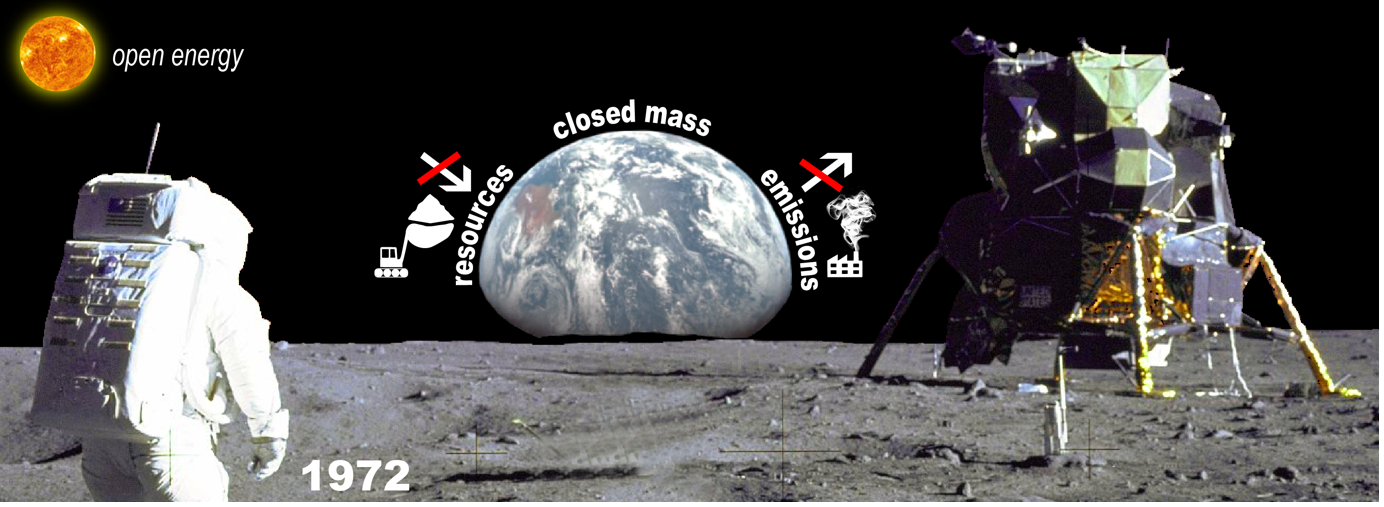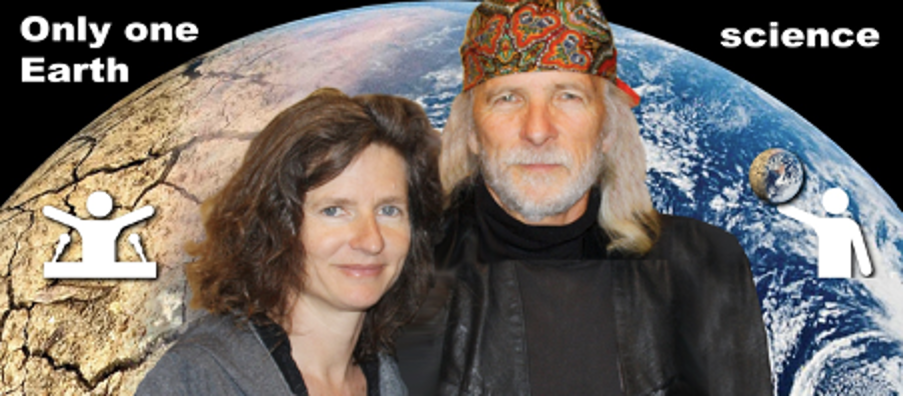Only One Earth science
Only One Earth science’s purpose is to provide comprehensive, accurate, unbiased data on global and 195 national actions that are required to realize sustainable human development on humanity’s “only one Earth”, importantly existential United Nations Climate (UNFCCC) and Biodiversity (CBD) Treaty objectives agreed by all nations, “limit warming to well below 2ºC, preferably 1.5ºC” and “humans live in harmony with nature by 2050”. These require limits on greenhouse gas emissions, the cause of climate change, and consumption of natural resource – biomass, metals, minerals, fossil fuels – the cause of nature destruction including 90% of biodiversity loss.
Only One Earth science provides the few essential global and national data – not comprehensibly available anywhere else – without which citizens cannot possibly demand adequate responsible action from governments; and if citizens don’t demand it, governments won’t do it. The data is is compiled from authoritative UN datasets and is supported for public communication by eminent scientists and science organisations (below).

“Only one Earth” was the theme of the first United Nations Environment Conference in 1972, a landmark event including the beginning of the United Nations Environment Program (UNEP), and decision that action would be by national “responsibility”, “contribution to global environmental degradation”, as we teach our children “clean up the mess you make”.

‘Only one Earth science’ emphasises that Earth is a closed mass system: sunlight (energy) comes in, but no meaningful mass (natural resources) is imported and atmospheric greenhouse gas emissions are held by gravity and not exported. Effective national emission and consumption action requires closed mass science laws:
Change from quantity to quality by law; Extract / consume the fewest possible natural resources by law; Make only the very best, lasting, shared, repairable, cyclical products (which does not include fossil fuel combustion) by law; Reduction of products can be painless because after biological needs are met, happiness is first humans, activities and nature NOT products; Reduce human population – starting with the highest per capita consuming / emitting nations.
A half-century after humans first landed on the Moon, all other celestial bodies including the Moon and Mars offer no meaningful extra-terrestrial resource import or emigration opportunities; they are infinitely more unliveable than any land on Earth. Science, knowledge, must be used to preserve Earth – nature – from which all humans, all humanity’s products and all life are made, upon which survival and prosperity wholly depend, and yet today nature is ever more rapidly, relentlessly degraded.
Humanity must adhere to closed mass science limits on natural resource extraction and greenhouse gas emissions, a by-product of consumption, in order to realize agreed UN sustainable development objectives including climate stabilization.

Scientist and visionary writer-director Michael Wadleigh is probably best known for his Oscar-winning, influential epic back-to-the-garden Woodstock viewed by billions. He has travelled all continents and nearly all countries working on existential science issues for over 50 years.
Before joining Michael 20 years ago, his partner Birgit van Munster (DVM) lived in Africa working on rural sustainable development for more than twenty years.
Michael and Birgit oversee non-profit educational and media science projects including UNESCO Homo Sapiens Reports, with European Environment Commissioner patronage and make truly imaginative, big picture presentations to influential global organizations such as the International Science Council, UNDP, UNEP, UNFCCC, WWF, European Environment Foundation, Club of Rome and many Universities and international schools like Harvard, London School of Economics, International Baccalaureate and Schola Europaea.
They work with scientists, educators and communicators using established global and national data to inform humanity’s leaders, and the public, so they can demand required adequate, responsible actions from governments to be within science limits to secure everyone’s future on our only one Earth.
Only one Earth UN science was reviewed and is supported for public communication by IPCC Chair Dr Jim Skea among other eminent scientists (below) in the Global North, “the most responsible and capable” and by Organizations representing Science in 88 nations with 40% of humanity, the Global South, “the least responsible who suffer the most and are least able to deal with it” including
• COMSTECH, OIC Ministerial Committee on Science & Technology, Prof. Dr. Iqbal Choudhary Coordinator General, • NASAC, Network of African Science Academies, Prof. Norbert Hounkonnou President, • AAS, African Academy of Sciences, Prof. Felix Dakora President, • ACAL, Academy of Sciences Latin America, Prof. Claudio Bifano President, • IAS, Islamic World Academy of Sciences, Prof. Adnan Badran President.
Only one Earth science is reviewed and supported for public communication by IPCC Chair Dr Jim Skea, IPCC Co-Chairs Dr Valérie Masson Delmotte, Dr Panmao Zhai, Dr Hans Pörtner, Dr Debra Roberts; UNEP Emissions Gap Reports’ “intellectual leaders” Dr Bert Metz, Dr John Christensen; IRP Co-Chairs Dr Janez Potocnik, Dr Izabella Teixeira, founding Co-Chairs Dr Ashok Khosla, Dr Ernst Weizsaecker.
UN Only one Earth science is considered “an important contribution to the UN 75th Anniversary Initiative”*, public communication supported by Dr Jian Liu, Chief Scientist UNEP, Dr Pavel Kabat, Chief Scientist WMO, Dr Soumya Swaminathan, Chief Scientist WHO, Dr Youba Sokona, Vice Chair IPCC, Dr Shamila Nair- Bedouelle, Director General Science UNESCO, Dr Guido Schmidt-Traub, Executive Director UNSDSN, Dr Elizabeth Mrema, Executive Secretary CBD, Dr Stefan Swartling Peterson, Director Health UNICEF. * Fabrizio Hochschild, UN Technology Envoy, UN 75th Anniversary Special Advisor.